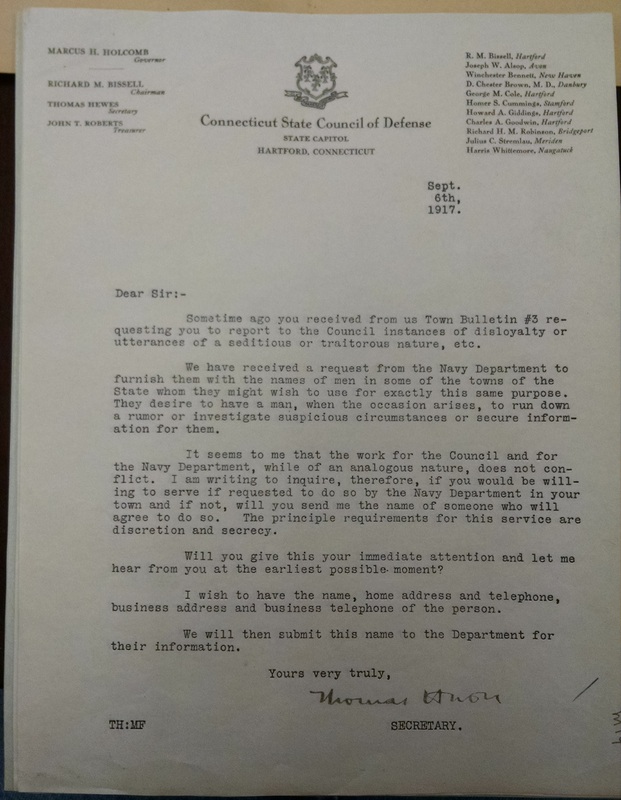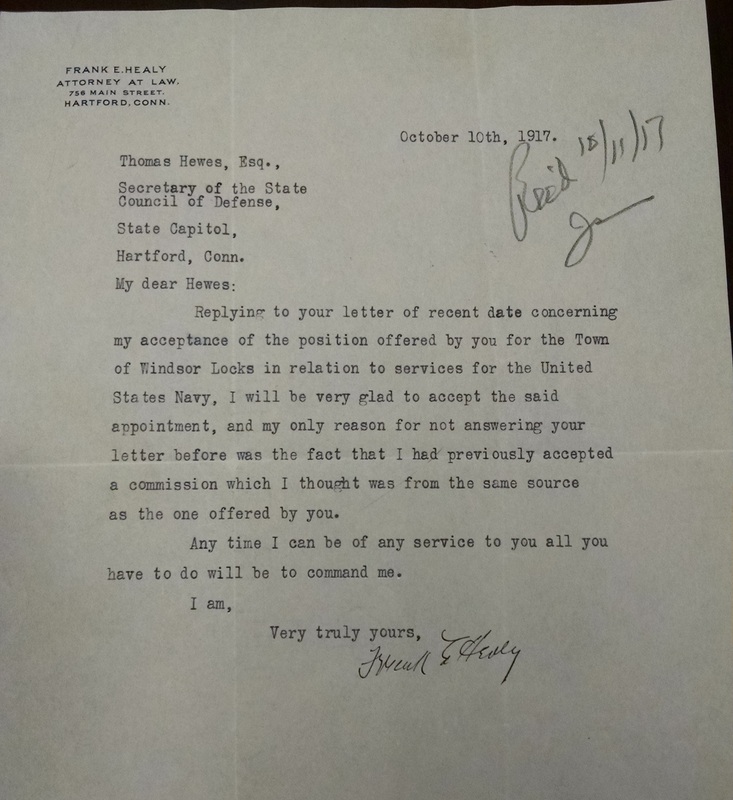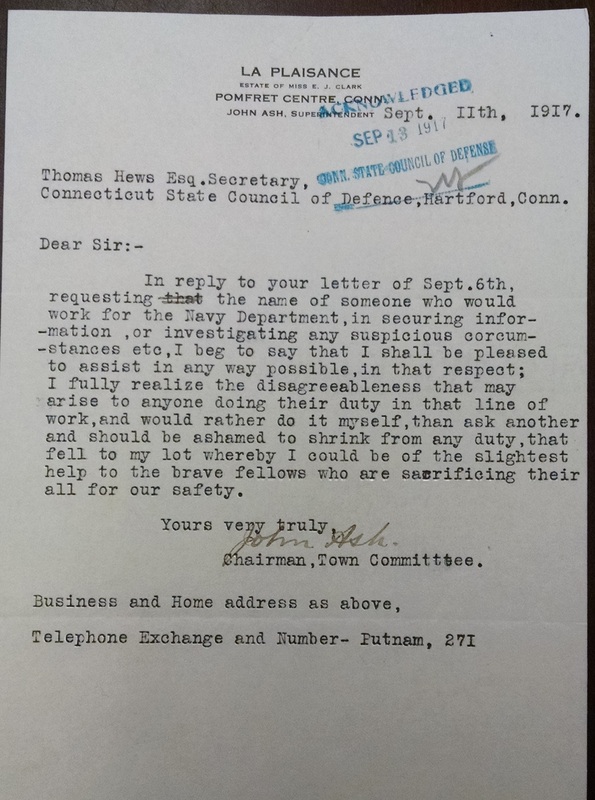Counter-espionage: The Navy Department and the Search for Detectives.
This is one of many letters sent from the Connecticut State Council of Defense to local branches regarding the search for detectives to work for the Navy to investigate cases of disloyalty. The intent was to select detectives from local police departments to serve and answer to the Navy, as espionage is a military matter. While ideally these individuals would have backgrounds in law enforcement detective work, discretion and secrecy were more valuable than experience. These men would investigate reported cases of disloyalty or suspicion of potential threats that local law enforcement or the Council of Defense received, but they will answer to a military authority. These detectives would be stationed in every town across the State, in order to swiftly investigate cases while blending into the community to avoid alerting the saboteur or German spy of possible detection.
While Healy's letter is unusual that he was recruited because he was an attorney at law rather than a detective, he must have possessed the attributes the Council of Defense desired, having a law background and a reputation for discretion. This letter is also written with enthusiasm to serve and is representative of many more letters of acceptance to serve. Many other letters of acceptance also recognize service as a duty and an honor. Healy's enthusiasm is representative of the large wave of nationalism spreading across the nation at the time. People displayed an eagerness to do their part for the war effort.
John Ash’s letter is unusual as he claims spying is disagreeable work, possibly on moral grounds, but like many other detectives, he saw it as his duty to make sacrifices to aid in the war effort. While he was not overly enthusiastic to serve, he acquiesced in the Navy’s orders to spy. This case shows not all detectives were fervent nationalists, yet a strong sense of duty still took precedence over the ethical implications of spying.
Letters to the Council of Defense did include rejections from detectives to spy. Those who accepted the commission had a strong sense of duty driving them to serve, even though some had reservations about doing so. During their service all detectives were discrete and secretive as not to arouse suspicion.


